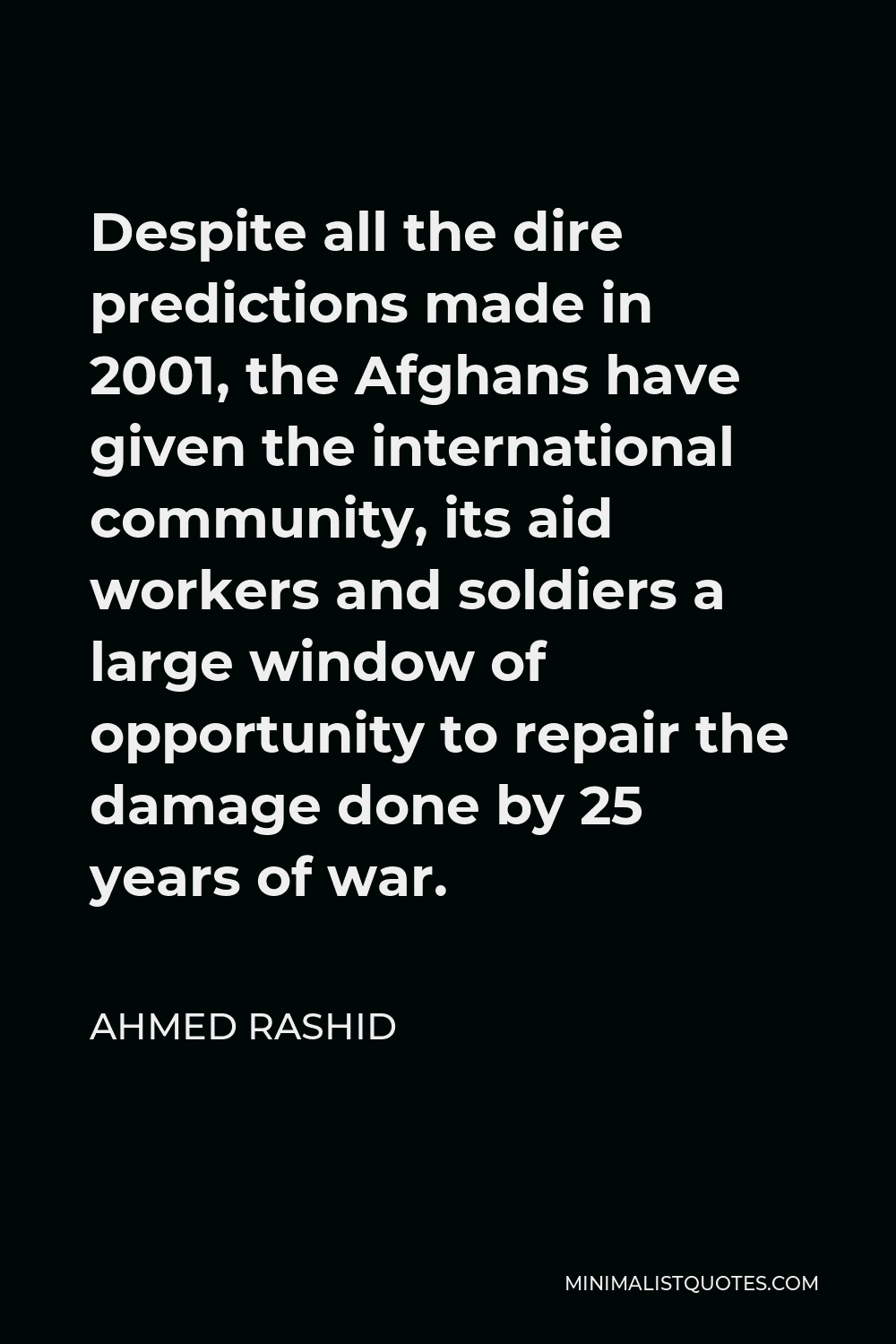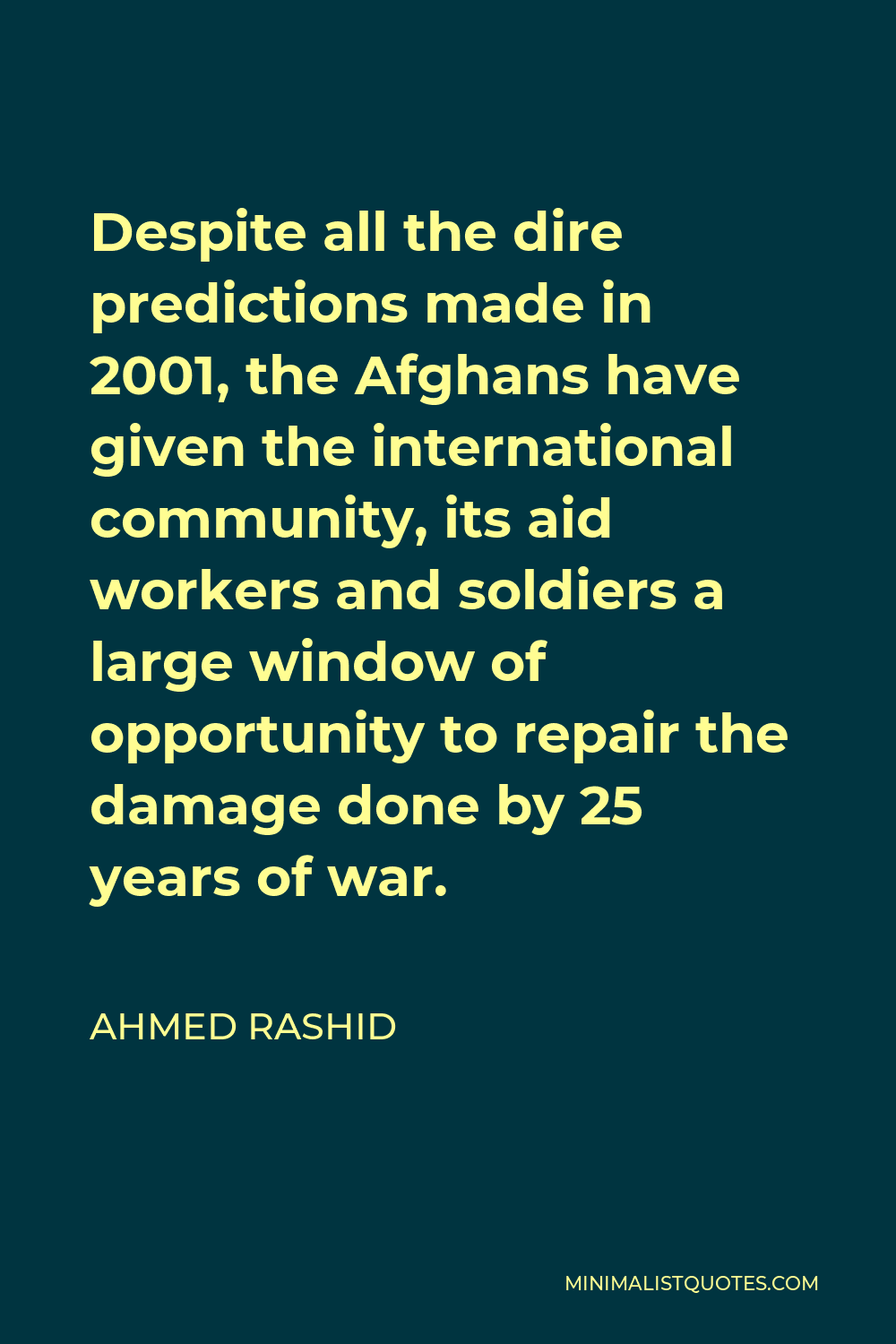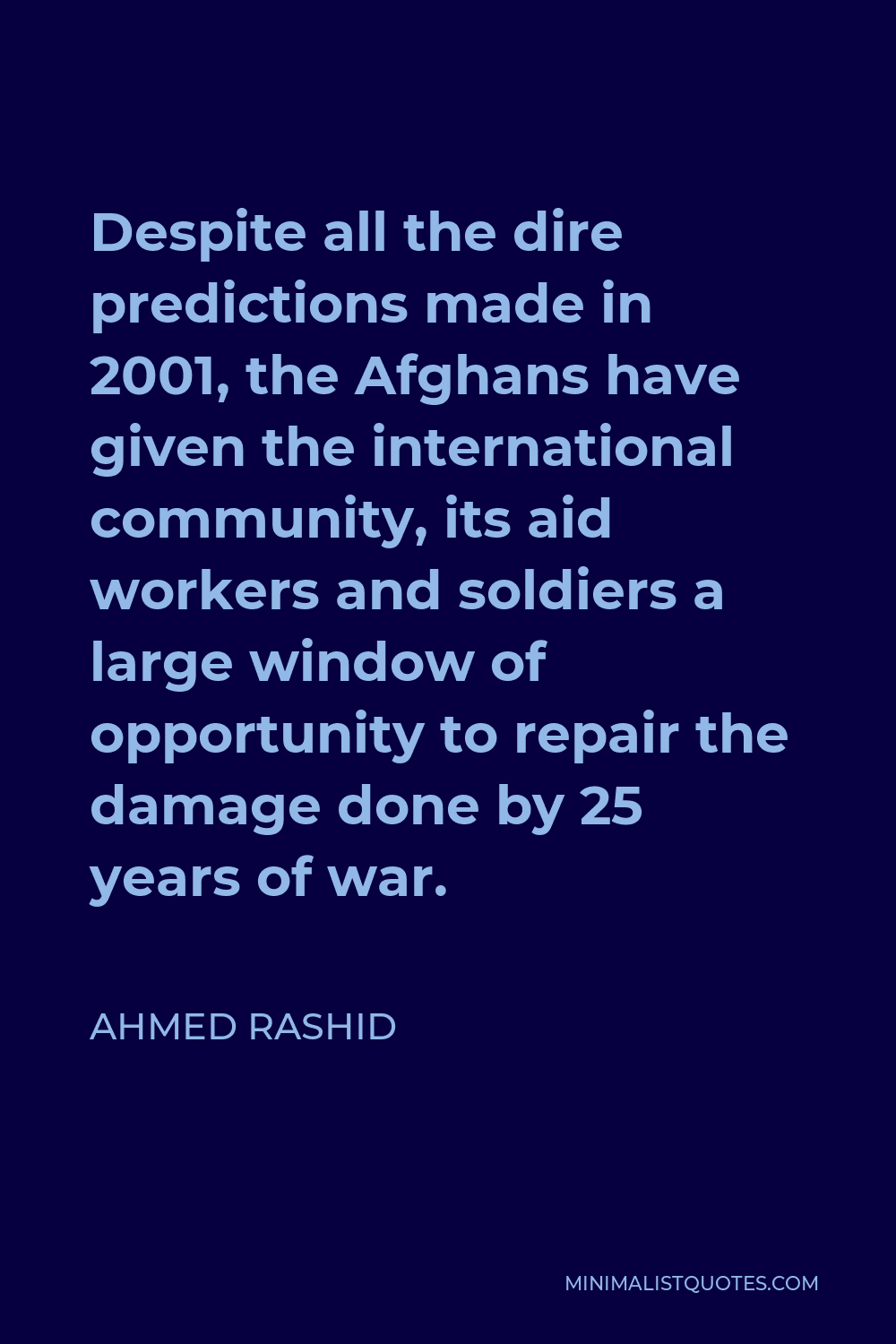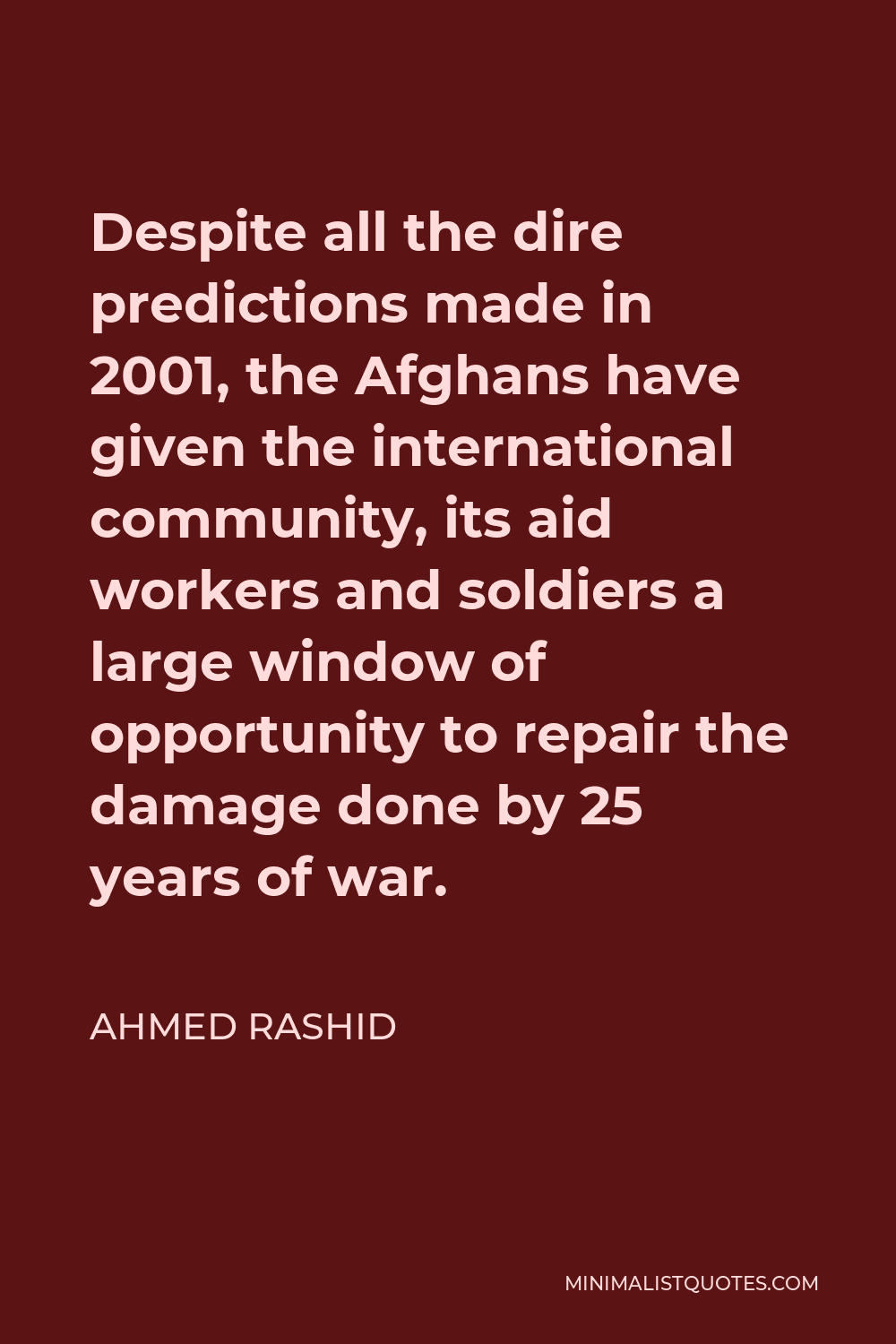The Pashtuns are angry at the Americans because, one, they’re still being bombed, and two, they perceive that the Americans are backing the Tajik faction, which controls the army and security forces in Kabul.
AHMED RASHIDDespite all the dire predictions made in 2001, the Afghans have given the international community, its aid workers and soldiers a large window of opportunity to repair the damage done by 25 years of war.
More Ahmed Rashid Quotes
-





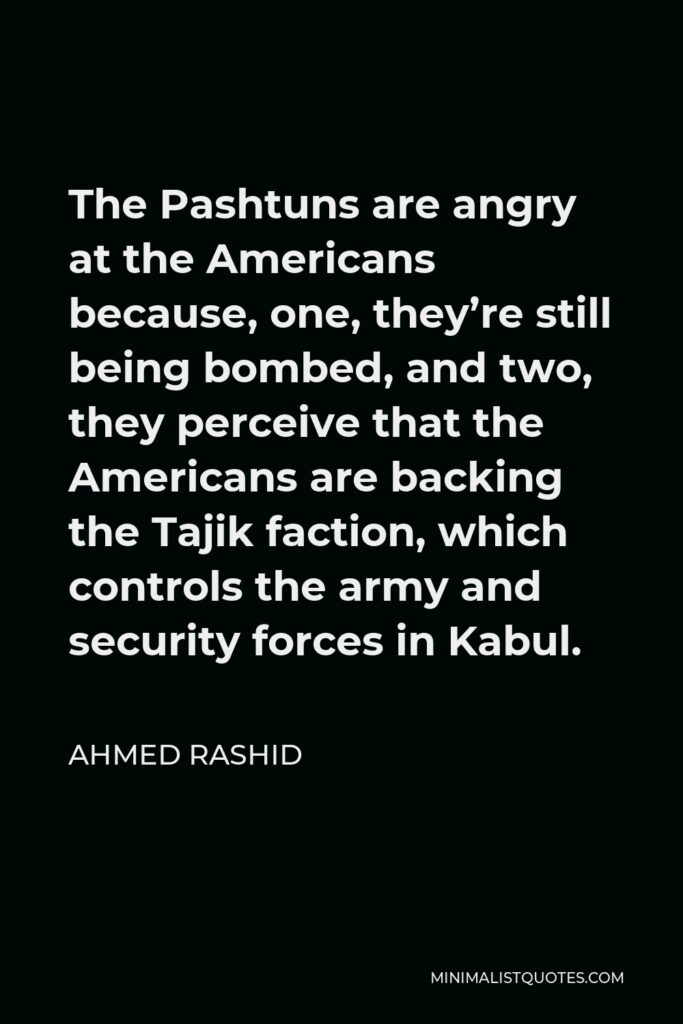

-





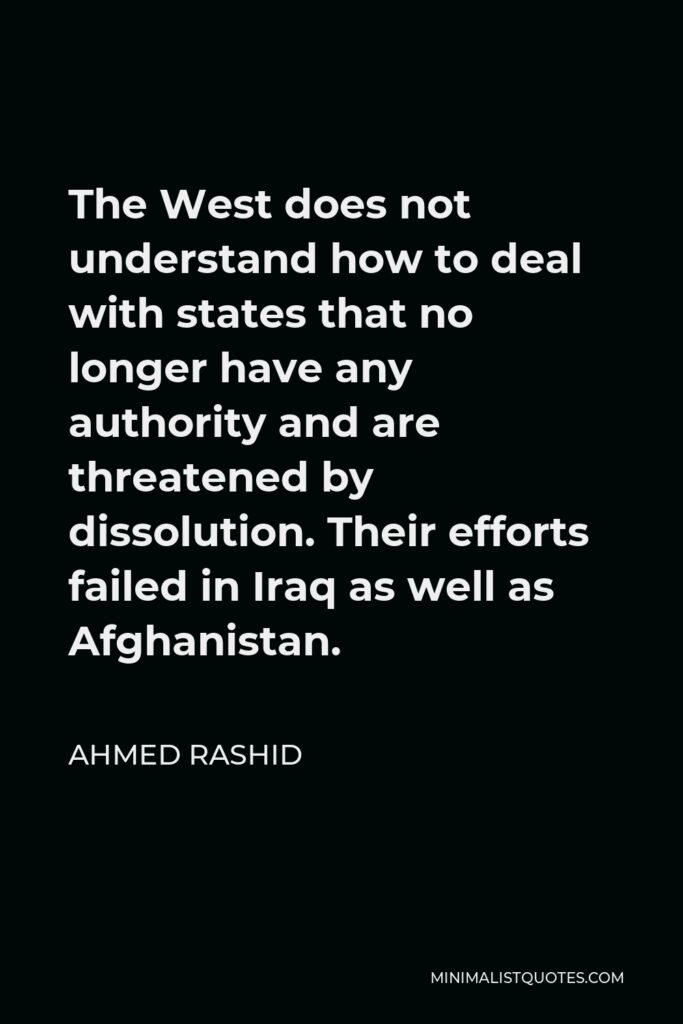

The West does not understand how to deal with states that no longer have any authority and are threatened by dissolution. Their efforts failed in Iraq as well as Afghanistan.
AHMED RASHID -





![Ahmed Rashid Quote - [Mullah Omar] gave himself this religious title. So it was something that all those people there who swore an oath of loyalty to him as a religious leader could not easily get rid of.](https://minimalistquotes.com/wp-content/uploads/2022/07/mullah-omar-gave-himself-this-religious-title-so-i-683x1024.jpg)

[Mullah Omar] gave himself this religious title. So it was something that all those people there who swore an oath of loyalty to him as a religious leader could not easily get rid of.
AHMED RASHID -





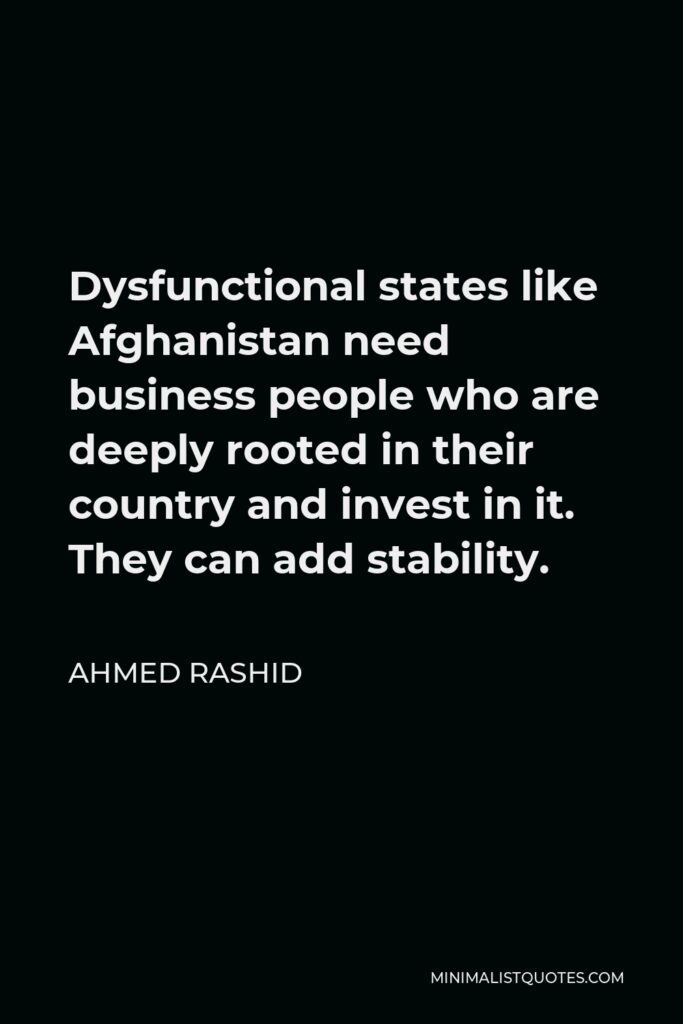

Dysfunctional states like Afghanistan need business people who are deeply rooted in their country and invest in it. They can add stability.
AHMED RASHID -





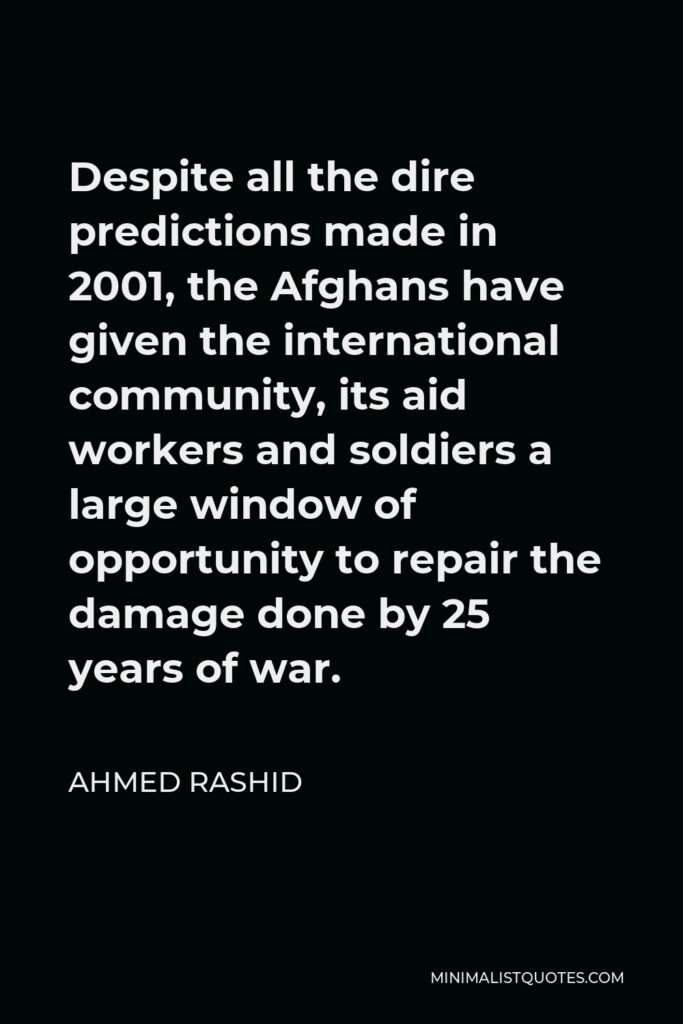

Despite all the dire predictions made in 2001, the Afghans have given the international community, its aid workers and soldiers a large window of opportunity to repair the damage done by 25 years of war.
AHMED RASHID -







George W. Bush and Tony Blair made the promise that they would not tolerate failed states because they could become a haven for terrorists. And today? The number increases.
AHMED RASHID -







This year we watched the collapse of Mali, a consequence of the Libyan civil war. The south of Libya and Mali, and Niger too, are well on the way to becoming a no-man’s land. After 9/11,
AHMED RASHID -





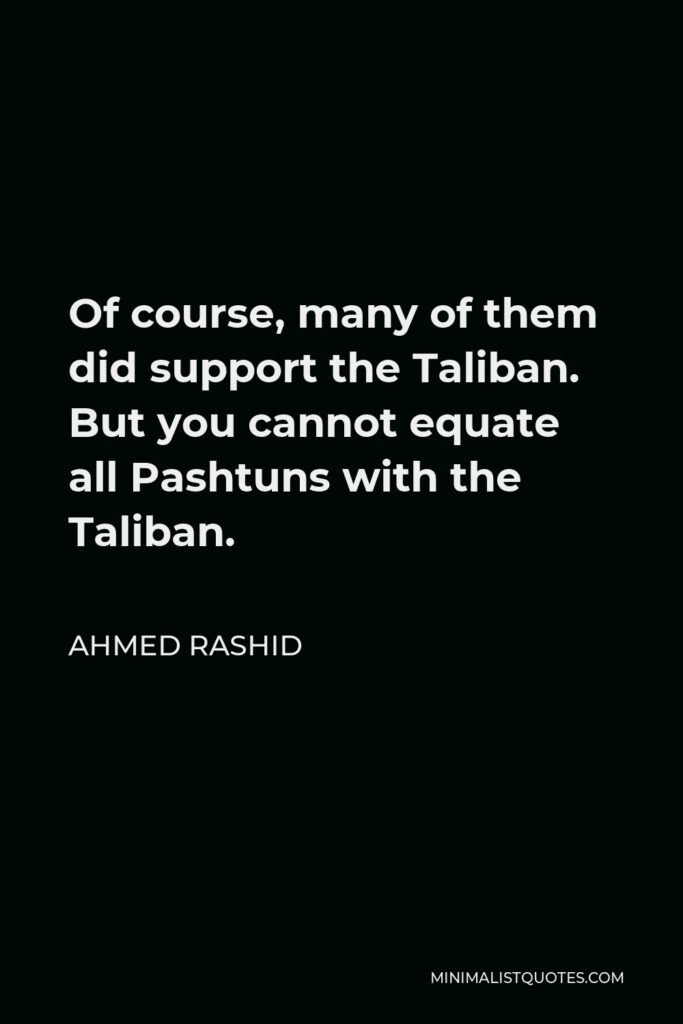

Of course, many of them did support the Taliban. But you cannot equate all Pashtuns with the Taliban.
AHMED RASHID -





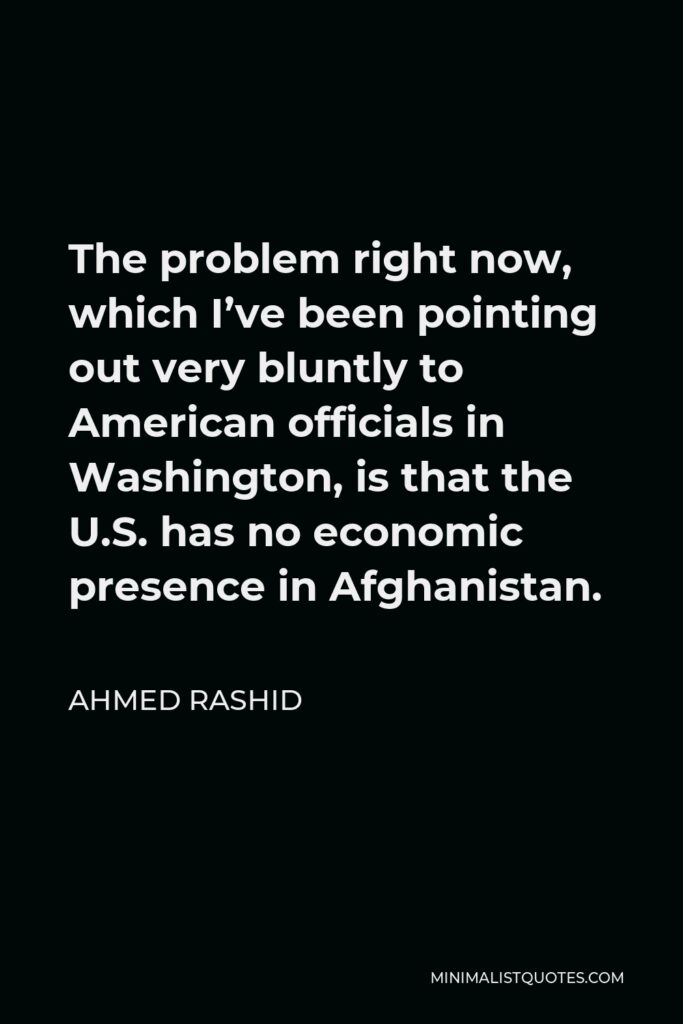

The problem right now, which I’ve been pointing out very bluntly to American officials in Washington, is that the U.S. has no economic presence in Afghanistan.
AHMED RASHID -





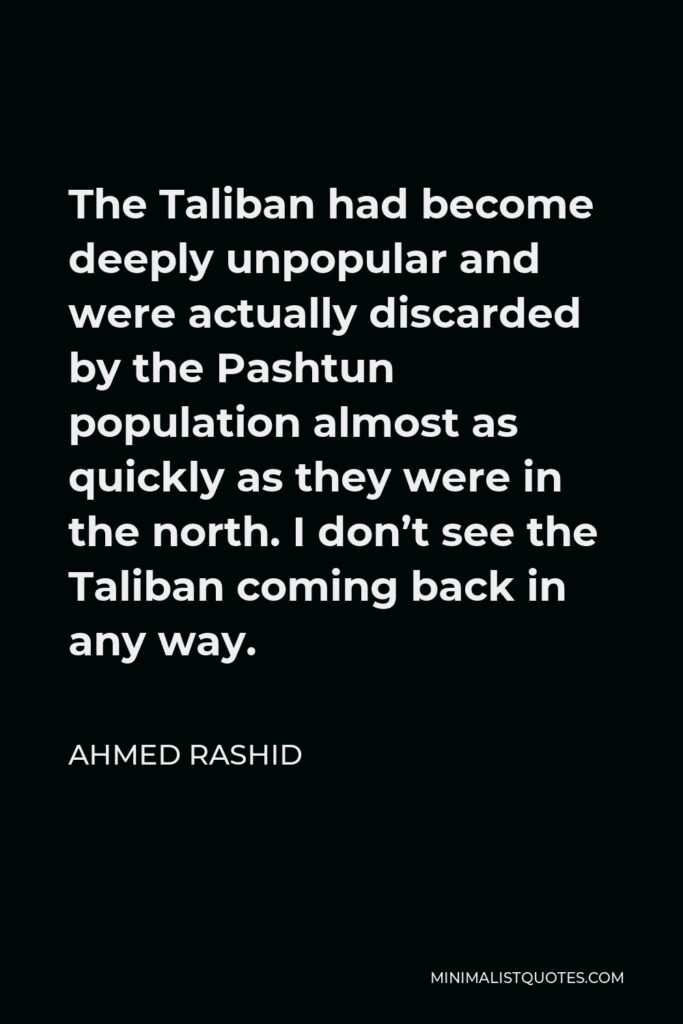

The Taliban had become deeply unpopular and were actually discarded by the Pashtun population almost as quickly as they were in the north. I don’t see the Taliban coming back in any way.
AHMED RASHID -





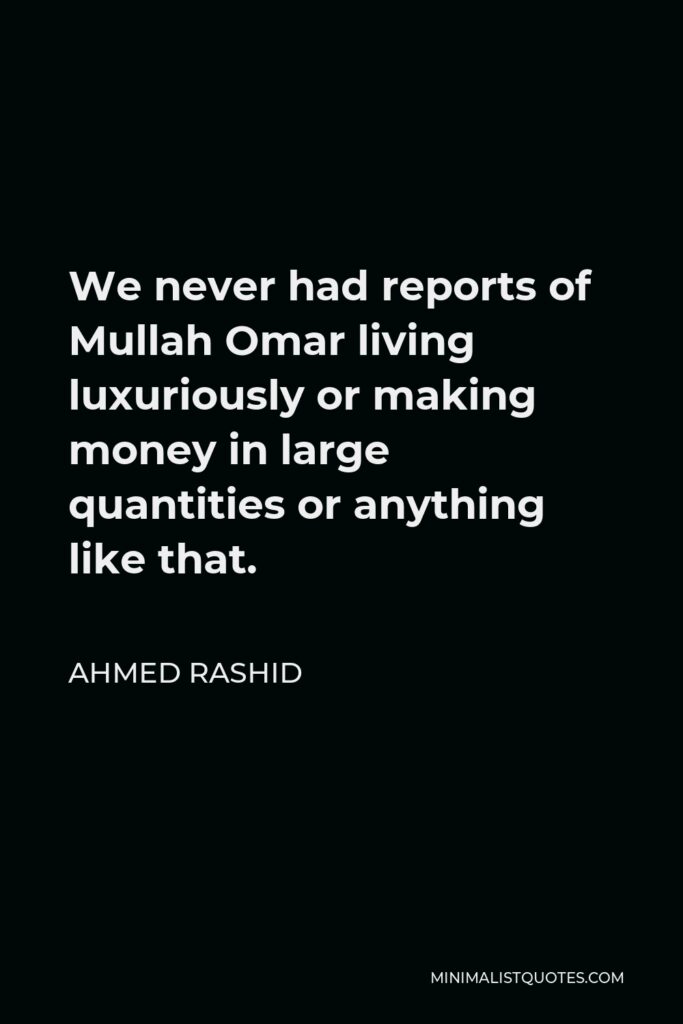

We never had reports of Mullah Omar living luxuriously or making money in large quantities or anything like that.
AHMED RASHID -





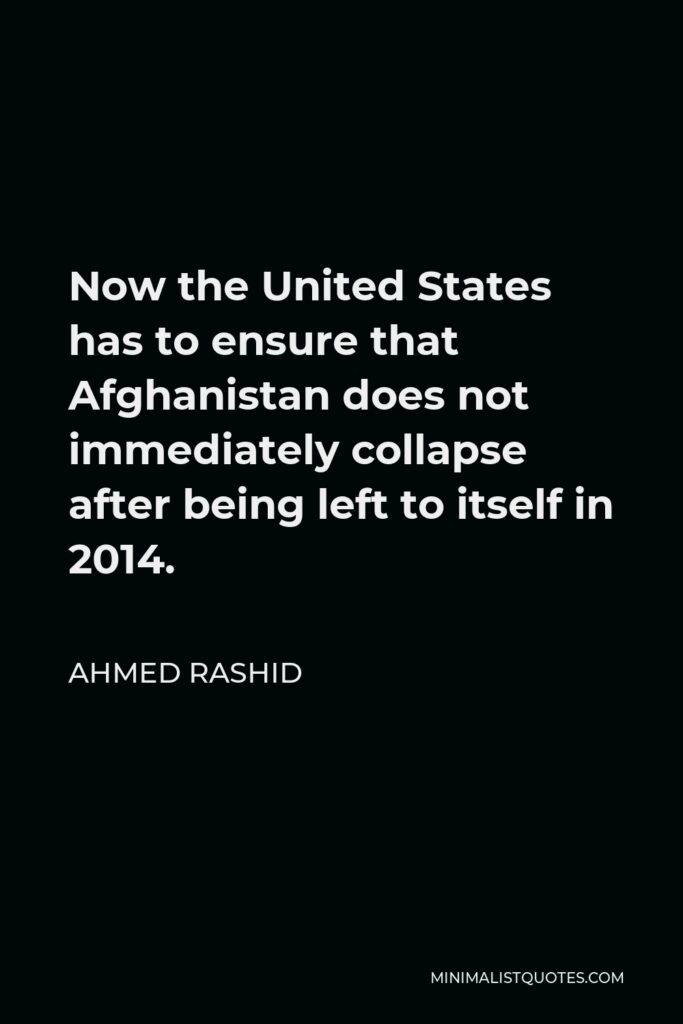

Now the United States has to ensure that Afghanistan does not immediately collapse after being left to itself in 2014.
AHMED RASHID -





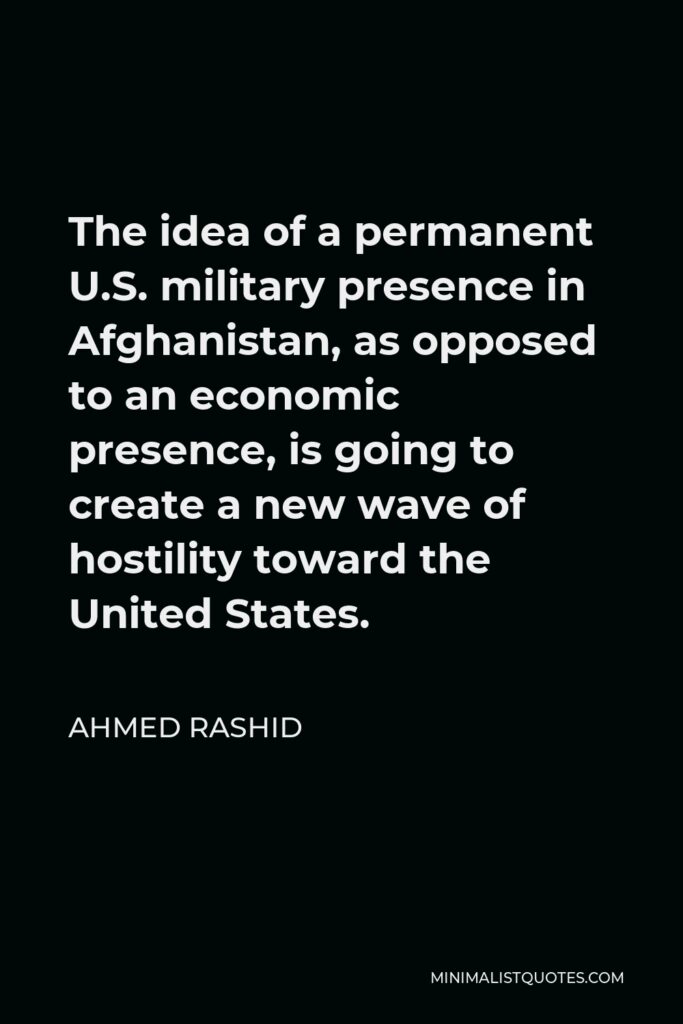

The idea of a permanent U.S. military presence in Afghanistan, as opposed to an economic presence, is going to create a new wave of hostility toward the United States.
AHMED RASHID -





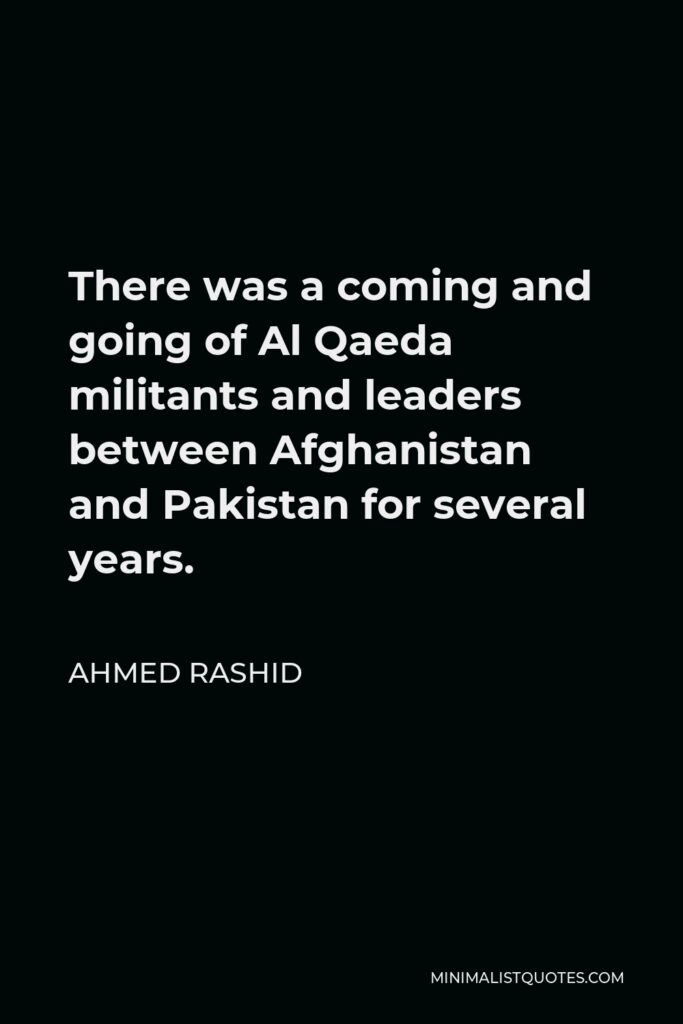

There was a coming and going of Al Qaeda militants and leaders between Afghanistan and Pakistan for several years.
AHMED RASHID -





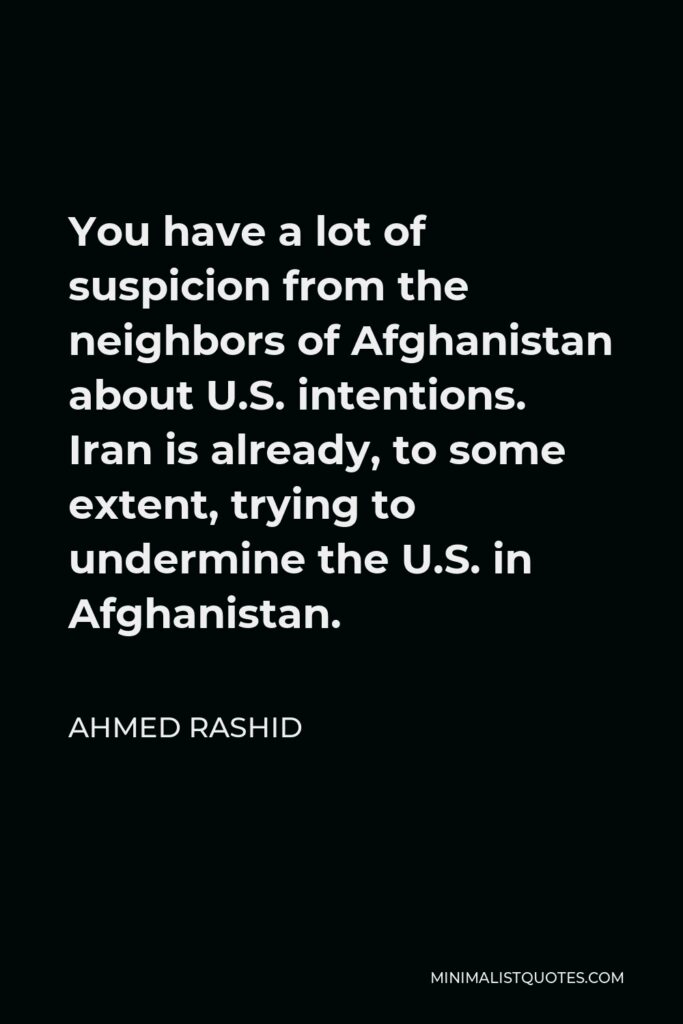

You have a lot of suspicion from the neighbors of Afghanistan about U.S. intentions. Iran is already, to some extent, trying to undermine the U.S. in Afghanistan.
AHMED RASHID -





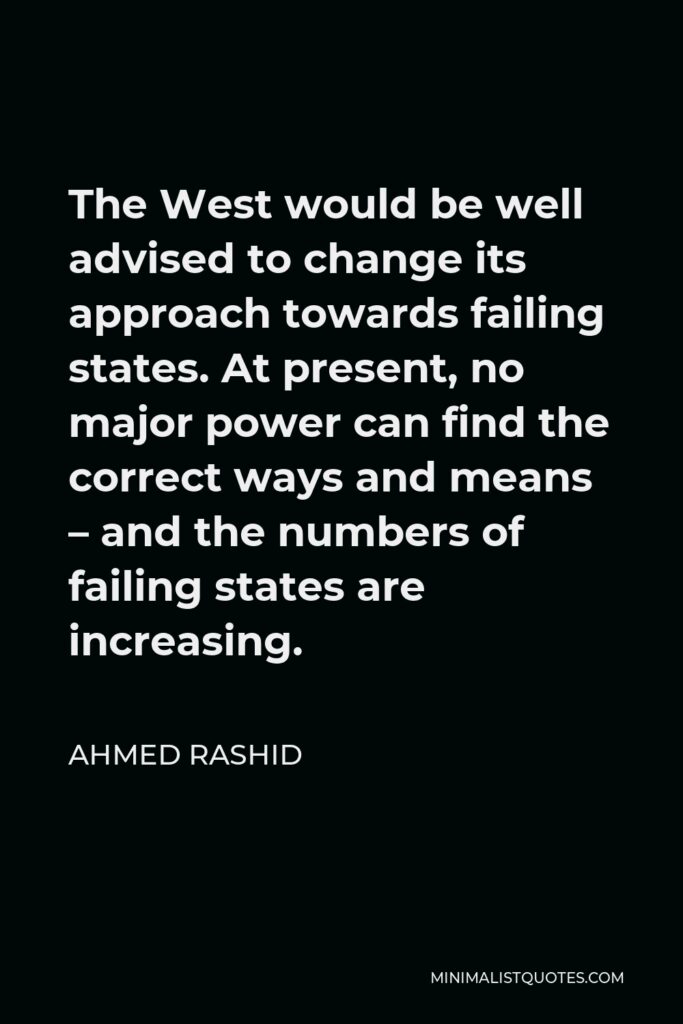

The West would be well advised to change its approach towards failing states. At present, no major power can find the correct ways and means – and the numbers of failing states are increasing.
AHMED RASHID
